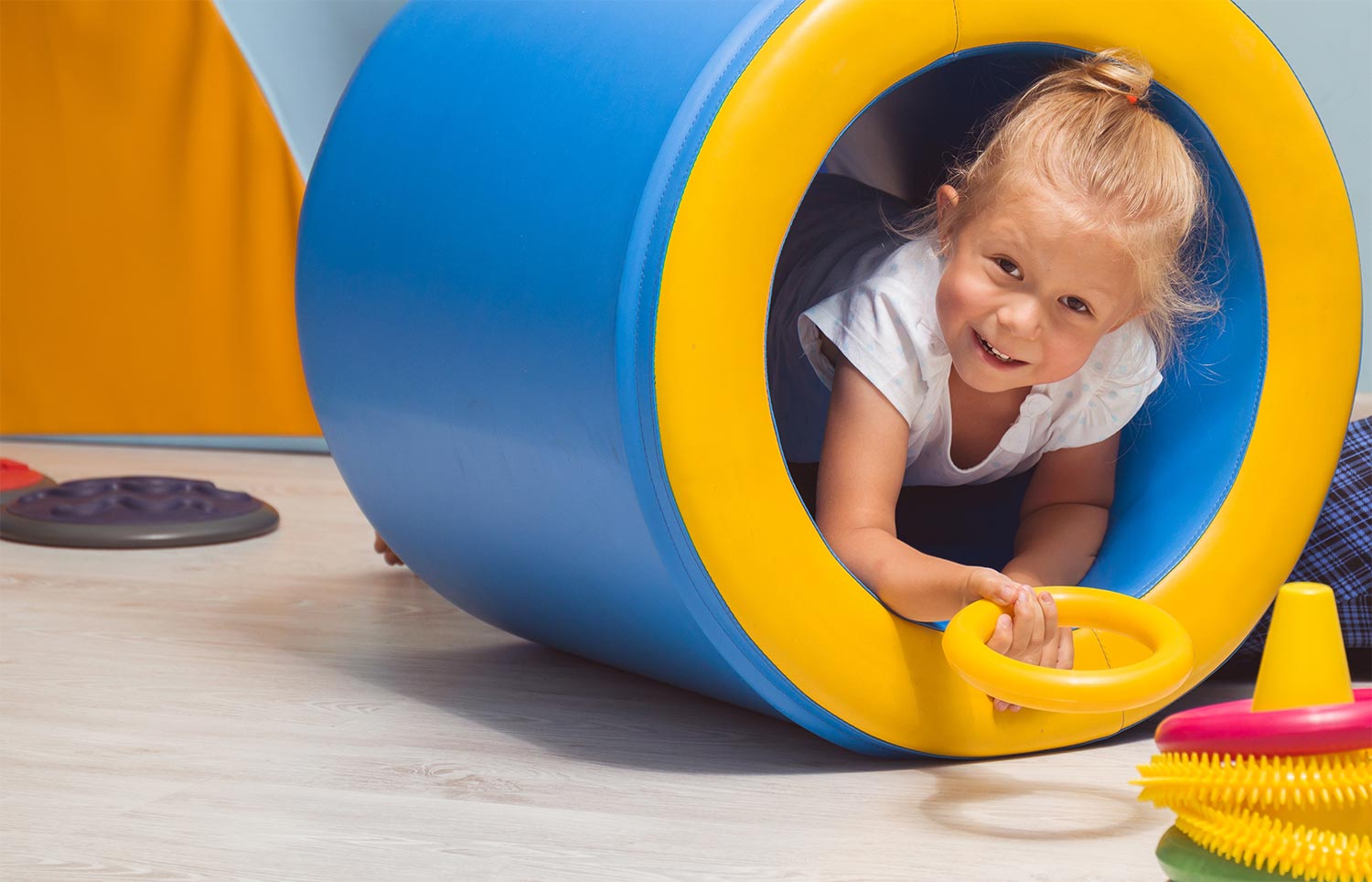
Ten years ago, this month, Idaho Pediatric Therapy Clinic (IPTC) began with one provider, in one room, housed inside Idaho Spine and Sports Physical Therapy. In the last decade, IPTC has grown in both space and staff, but our core motto has always remained the same: A Child’s Job Is To Play! Play is a basic form of learning for all children, regardless of their varied abilities.
Research has shown that play provides an essential means to a child’s development, both physiologically and emotionally. Recent reports have shown that play can influence the brain at the cellular level, influencing structure and function. Play can also strengthen interactions between care providers/parents/friends, strengthening emotional bonds, reducing stress, and providing the basics for turn taking and other essential social flexibility tasks.
But what is play? According to an article from the American Academy of Pediatrics (AAP), they describe play as “an activity that is intrinsically motivated, entails active engagement, and results in joyful discovery.” The AAP describe play as something that is voluntary, and is “fun and often spontaneous”. Play challenges children by encouraging them to take risks and promote experimentation, which promotes innovation and creativity. It can include interaction with objects, physical, ”rough-and-tumble play”, outdoor play, and pretend play.
So, what is our role in promoting play? As therapists, we are asked to help our children attain age appropriate skills in communication, gross motor/coordination activities, self-care care skills, and the ability to tolerate various sensory inputs. As play is the primary means for attaining those skills in the pediatric population, play must be used by all our professionals to promote progress. This may be in the form of obstacle courses, crafting, board games, puzzles and word finds, as well as swinging and scooter rides.
To find what is intrinsically motivating for each patient, to promote spontaneous play, provides the opportunity for the child to challenge boundaries and learn from their experience. Often, our patients have difficulty in participating in spontaneous play, whether that is from communication difficulties, coordination delays, or differing physical abilities. Each of our therapists takes the time to find what truly motivates our patients and turns that into opportunities for play, while focusing on therapy goals and development. We also place great emphasis on teaching families to promote those same opportunities in the home through the use of equipment, by initially modifying the activity with a home program, or including other similar activities that will build to the eventual goal. The challenge to find those activities and opportunities for our families is one of the primary passions of each of our pediatric therapists.
Now, as we reflect over the last few years, we want to thank all those families that entrusted us to play and grow with their children. Everyday, we ask our children to challenge themselves in ways that they had not imagined, or that their families may not have found possible. We have dealt with tears of frustration and loss, happiness over new found skills, and all the emotions in between. But, in the end, our hope is that every child that we have worked with has found new ways to explore their environment through play.


